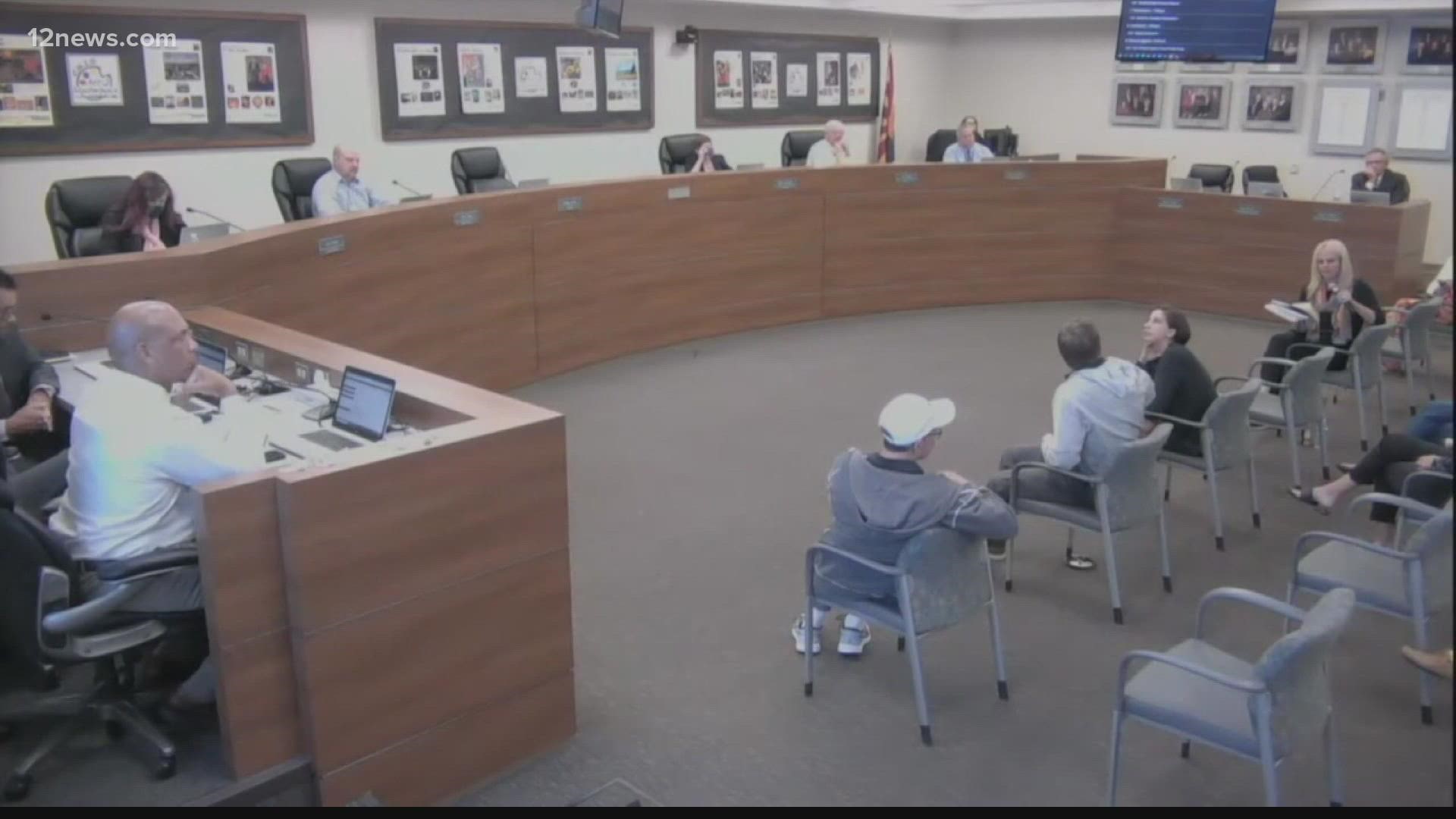ARIZONA, USA — Arizona’s school superintendents are mired in debate over masks, quarantines, and curriculums, causing many to leave the job.
There was an average of 24 annual superintendent vacancies during the two years before the pandemic, and an average of 31 annual vacancies over the last two years, according to the nonprofit Arizona School Administrators. The vacancies represent a pandemic increase of 29%.
Why are they leaving the job?
Most superintendents are being forced out of their jobs by the public and school boards. Others are choosing to retire early.
“Superintendents are in a volatile, polarized environment,” said Mark Joraanstad, Executive Director of Arizona School Administrators. “Many are saying, ‘I don’t need this anymore. Life’s too short.'”
Camille Casteel retired last year, completing 50 years of service in the Chandler Unified School District, including 25 years as Superintendent. Casteel was highly respected. A high school is even named after her.
She acknowledges that although the pandemic was not the primary factor, it played a role in her decision to retire.
“All of the sudden we were dealing with national issues, and state issues and all the problems of the world,” Casteel said. “Trying to apply all the mandates, recommendations, changing directions (from the federal government), it’s a tough place to be.”
Superintendents navigate the pandemic
Early in the pandemic, Casteel led the district in the transition to online learning, as it distributed computers to 45,000 kids. Then as schools returned to in-person learning, administrators were trying to implement federal and state guidelines while parents second-guessed those guidelines.
“There was so much information that changed regularly and we were on the front lines trying to communicate that,” Casteel said.
Adding to the frustrations of school administrators was an onslaught of misinformation on the internet about COVID-19. Unsubstantiated rumors led to online threats against school employees and volatile school board meetings, Casteel said.
“I used to enjoy school board meetings,” Casteel said. “You know you would focus on issues, on what you need to do to help children. All of the sudden they became battlegrounds.”
Chandler Unified, like many school districts, enlisted local police to secure public meetings.
12 News covered several school board protests over the past year that featured parents reciting false information about masks and the vaccine industry.
“We hadn’t faced like anything like this before. Families were looking to us for guidance and we were looking to the politicians and the medical community for guidance,” Casteel said.
“Everything has become politicized”
A debate also flared up in local school districts about “critical race theory,” an academic movement by civil rights scholars and activists.
School district leaders said they were flooded with complaints and comments from parents on both sides of the issue. There was no evidence districts were implementing substantively new content into their curriculums, but parents expressed their anger just the same. During public hearings, some parents confused critical race theory with existing equity programs.
“Everything has become politicized,” said Mark Joraanstad, Executive Director of Arizona School Administrators. “Even routine curriculum decisions have become politicized.”
During a school board meeting last year, Casteel pleaded with parents to fact-check information before reaching conclusions. Casteel says administrators are constantly trying to “put out fires” and “get good information out there” to parents.
“The vast majority of parents are very, very supportive. There are a few who were difficult to reason with them because their minds were made up,” Casteel said.
As the pandemic shows signs of slowing down, school administrators will continue to address the ongoing problem of staff shortages, Joraansdstad said.
Districts continue to lack teachers, support staff, bus drivers, and even cafeteria workers.
“I’d like families to also remember the superintendents, the support staff, they also have families,” Casteel said. “They’re well-intentioned and in a tough spot.”
Up to Speed
Catch up on the latest news and stories on the 12 News YouTube channel. Subscribe today.

